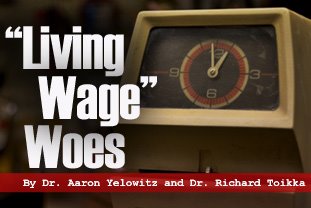
Every Spring when the IRS comes calling, and local Real Estate Tax bills arrive, talk turns to how "unfair" taxation is in this country - "tax cuts for the richest 1%", etc.
The tax-spenders want more money and on the surface decry anything resembling everyone paying the same rate of tax on anything. They feel that those that have more should pay a greater percentage to the communal pot (for the social "experts" to spend). This is the concept of "progressive" taxation.
We are constantly amazed at the silence of these folks on the most regressive taxes of all - property, cigarettes, alcohol, and most insidious, state lotteries.
It is extremely difficult to get a hold of State "target demographic" marketing data. They don't want to talk about it. However, WoodfordTaxFacts.com has obtained some of this information and it is stunning.
Essentially, what we need to understand is that those most prone to smoking, drinking, and gambling with "lotteries" are at the lowest rungs of the socio-economic ladder. These taxes are a disproportionate burden on the undereducated, elderly, and immigrant populations. They always have been and they always will be.
The Real Estate tax as we've discussed many times is a tax on savings, not income, and burdens those on fixed incomes the most (read - low income/retired/elderly).
Where is the "progressives' " outrage? As an aside, how can you have "sin taxes" on certain behavior/consumption and then "profit" from same in the form of taxation? The status quo indicates it can be politically justified by putting those monies into "education, training, treatment, and heathcare" programs. However in Illinois, after the promises faded, the monies end up in the "General Fund" anyway. Remember when the Illinois Lottery was instituted? The sales pitch was that gambling (the numbers racket) was going on anyway, and why not just have the state horn in on the illegal enterprises and take a piece of that pie. Who could complain? That was supposed to be a property tax relief deal for education funding. It was going to go into the proverbial "lock-box".
The huge hike in tobacco taxes and the lawsuit settlements (tax) on "Big Tobacco"? That was to go into Medicare. The State is still not paying doctors and hospitals for 18 months.
Beer, wine, and liquor license fee increases and excise taxes? Well, those were always intended to ease the transition from prohibition and were to go into prevention and care of abusers; never happened.
So next time your friends complain about how the poor and middle class pay too much tax relative to "the rich", remind them that an easy way to put real money into low income pockets would be to eliminate the aforementioned taxes, get rid of the lottery, and gently remind them that less than half of all Americans pay any federal income tax.
Next up - we'll discuss the federal "Earned Income Tax Credit" monies gushing out to Mexico via illegals living here, but legally able to file and claim dependents back home. Anything we can do to help out Mexico . . .







